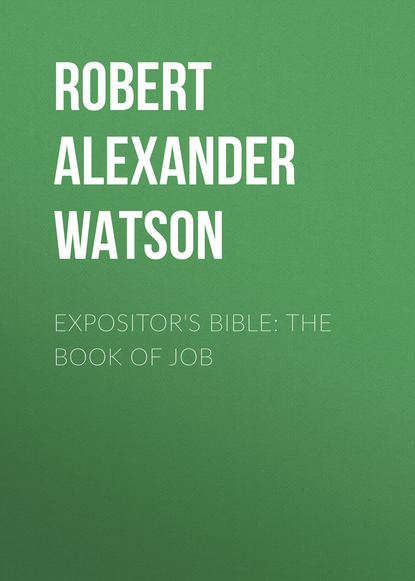 Полная версия
Полная версияExpositor's Bible: The Book of Job
The writer's finest things came to him by flashes. When he reached the close of his book he was not able to make a tragedy and leave his readers rapt above the world. No pre-Christian thinker could have bound together the gleams of truth in a vision of the spirit's undying nature and immortal youth. But Job must find restored power and energy; and the close had to come, as it does, in the time sphere. We can bear to see a soul go forth naked, driven, tormented; we can bear to see the great good life pass from the scaffold or the fire, because we see God meeting it in the heaven. But we have seen Christ.
A third point is that for dramatic completeness the action had to bring Job to full acquittal in view of his friends. Nothing less will satisfy the sense of poetic justice which rules the whole work.
Finally, a biographical reminiscence may have given colour to the epilogue. If, as we have supposed, the author was once a man of substance and power in Israel, and, reduced to poverty in the time of the Assyrian conquest, found himself an exile in Arabia—the wistful sense of impotence in the world must have touched all his thinking. Perhaps he could not expect for himself renewed power and place; perhaps he had regretfully to confess a want of faithfulness in his own past. All the more might he incline to bring his great work to a close with a testimony to the worth and design of the earthly gifts of God, the temporal life which He appoints to man, that present discipline most graciously adapted to our present powers and yet full of preparation for a higher evolution, the life not seen, eternal in the heavens.
1
"Mark Rutherford."
2
See Renouf's Hibbert Lecture, also "The Unknown God," by C. Loring Brace.
3
Emerson, Essay III. "Compensation."
4
Bushnell, "Moral Uses of Dark Things."
5
Jonathan Edwards, "Dissertation concerning the End for which God created the World," Section IV.
6
"Consolation of Philosophy," chap. xlii.
7
Mrs. Ward's translation, p. 116.
8
"Festus," edition 1864, p. 503.
9
"Modern Painters," vol. v., 141.
10
"Modern Painters," vol. iii., p. 307.



